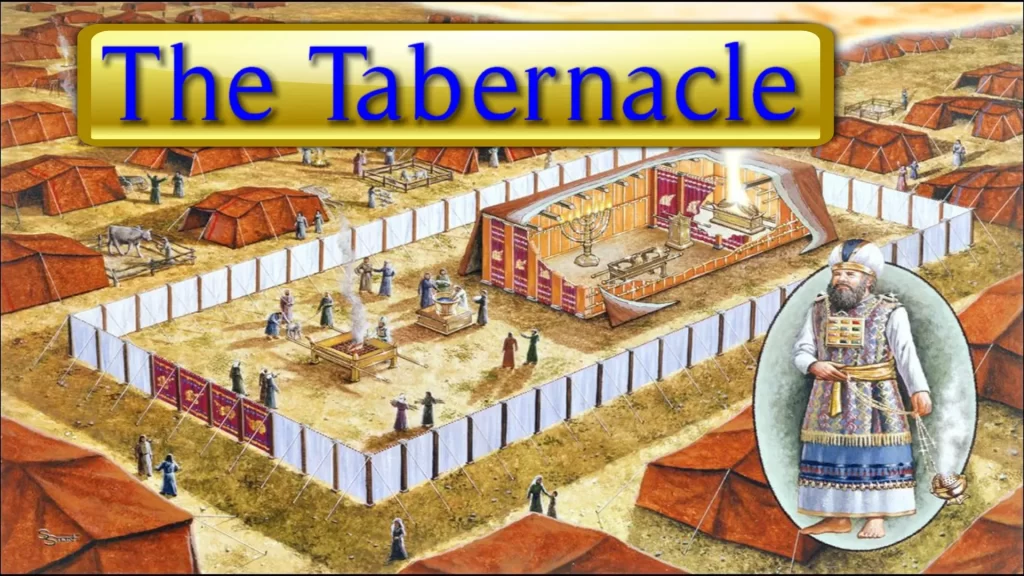 Last week I was studying to teach the children’s Bible class on the Ark of the Covenant. Or the ‘special box of God’s agreement’ in child speak. But why bother to study about the gold covered chest that represented God’s relational covenant with his people so long ago? Why care that he promised to be their God and they would be his special people? For that matter, why study the ancient stories about God and his people in the Old Testament at all? Because all Scripture is given to us by God who seeks to reveal himself to us.
Last week I was studying to teach the children’s Bible class on the Ark of the Covenant. Or the ‘special box of God’s agreement’ in child speak. But why bother to study about the gold covered chest that represented God’s relational covenant with his people so long ago? Why care that he promised to be their God and they would be his special people? For that matter, why study the ancient stories about God and his people in the Old Testament at all? Because all Scripture is given to us by God who seeks to reveal himself to us.
“All Scripture is God-breathed and is useful for teaching, rebuking, correcting and training in righteousness…” 2 Timothy 3:16
God is God so he gets to make the rules. But his rules aren’t arbitrary, they’re made to give us lasting happiness. So here are some cool things I studied: The two pieces of stone on which God had written his 10 basic rules to live happy, God-pleasing lives were put into the box first. His laws would be the solid foundation for their society. These laws gave them a base for relating to him and a framework for relating with each other.
Then the gold pot filled with manna to remind them that he is the God who provides for them.
The third item in the special chest was Aaron’s staff that miraculously produced buds, flowers, and almonds, affirming Aaron’s family as God’s religious leadership choice.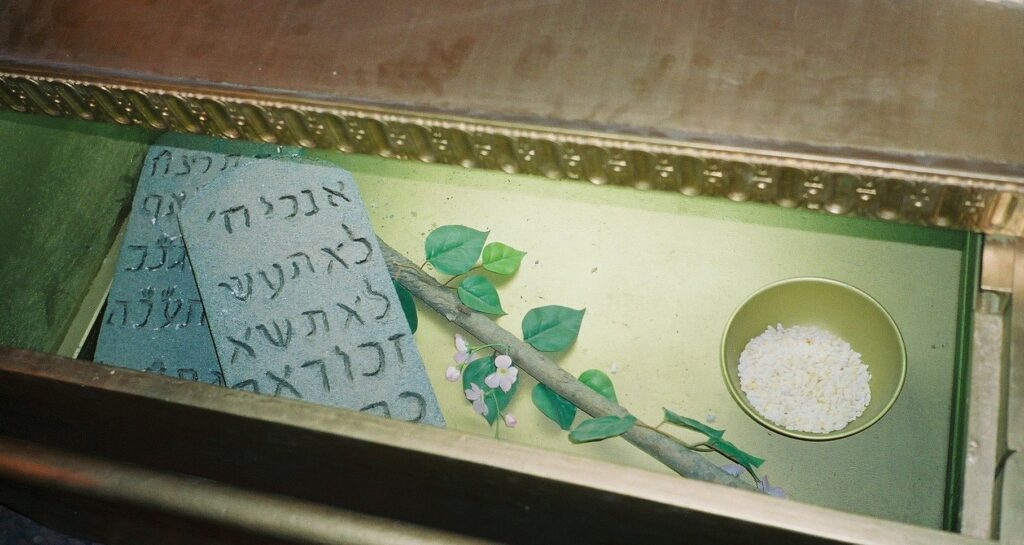
While studying, I listened to a sermon online that gave me one of those ‘Aha!’ moments. The idea was simply this: The three reminders of God’s covenant with his people showed God’s kind relationship with his people. But it also reminded them of their failures. They broke the 10 rules and complained about the manna. The whole reason the staff of Aaron budded was that the rest of the tribe of Levi were envious of Aaron’s priesthood. So the three items reminding them of God’s part and their failures were in the special chest. But above them and covering them was the gold lid called the Mercy Seat (or the atonement cover). Not the Judgment Seat! There were statues of two powerful angels bending over with their wings touching. (But there was no representation of God.) On this lid the blood of an animal was sprinkled once a year by the high priest who entered on Yom Kippur (Day of Atonement).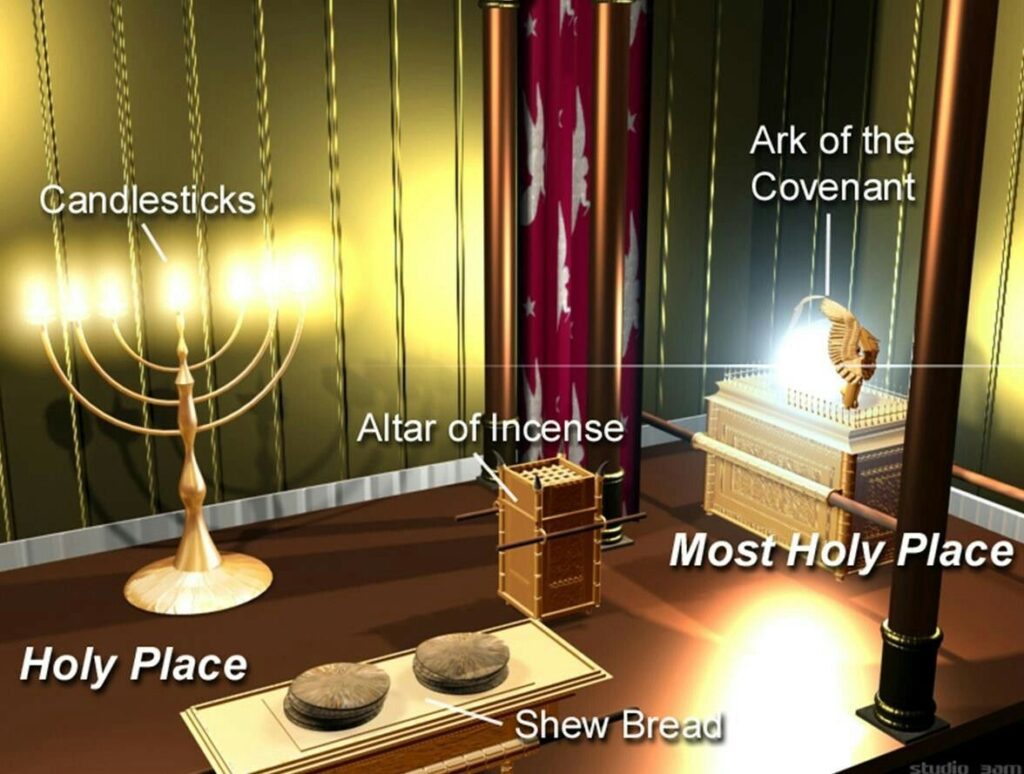
The blood represented God’s willingness to cover over the sins of the people until the Messiah would come to offer his own blood and make a new covenant with his people. (Isaiah 53, Ezekiel 16, Jeremiah 31) Despite our many failures, God graciously makes provision for forgiveness. But we have to do it his way. We don’t make the rules -well, we do make our own rules but they have no authority! God makes the true rules and we do well to follow them.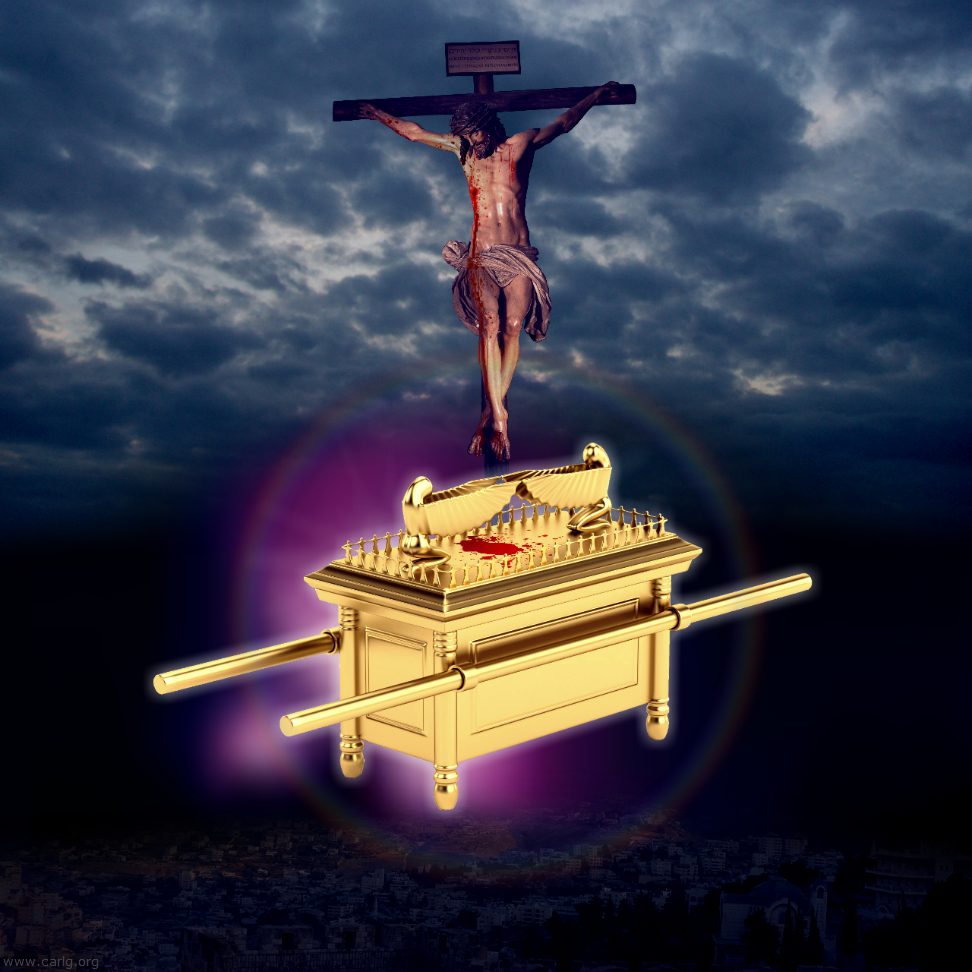
After teaching the children on Sunday, I decided to do some more studying on the items in the Ark of the Covenant. Something unexpected jumped out at me when I was meditating on Aaron’s rod that miraculously came to life as the symbol of God’s choosing Aaron and his family as his priests. God had clearly established a certain plan for spiritual leadership. Only one clan in the tribe of Levi were to serve as priests. The other clans in the tribe of Levi were to help the priests take care of the Tabernacle and explain God’s ways to the people. But they were not allowed to officiate at the sacrifices in the Tabernacle courtyard. Nor were they allowed to offer incense, tend the Menorah, or replace the bread in the Holy Place. These clans became discontent with their appointed role. They were envious of the priests perhaps desiring their prestige, authority, and rewards. However, this leadership plan wasn’t Moses’ idea. It was God’s. Yet a leader in one of the clans of Levi felt Moses was being unfair and arbitrary to withhold the privilege of the priesthood from the rest of the Levites. He accused Moses and Aaron of setting themselves in power when others were just as qualified. He said,
“The whole community is holy, every one of them, and the Lord is with them. Why then do you set yourselves above the Lord’s assembly?” Numbers 16:3
Now Moses was humble and knew he wasn’t guilty of being power-hungry, nor had he established Aaron as priest by his own decision. Instead of standing toe to toe with the Korah, the rebellious leader, he fell on his face in humility (and probably shock!) Then he deferred to the Lord to settle the question instead of defending himself.
“When Moses heard this, he fell facedown. Then he said to Korah and all his followers: “In the morning the Lord will show who belongs to him and who is holy, and he will have that person come near him [as priest]. The man he chooses he will cause to come near him. You, Korah, and all your followers are to do this: Take censers and tomorrow put burning coals and incense in them before the Lord. The man the Lord chooses will be the one who is holy. [set apart]” Numbers 16:4-7
Then he tried to talk some sense into the leader of the rebellion hoping to avert the impending judgment of God.
“Moses also said to Korah, “Now listen, you Levites! Isn’t it enough for you that the God of Israel has separated you from the rest of the Israelite community and brought you near himself to do the work at the Lord’s tabernacle and to stand before the community and minister to them? He has brought you and all your fellow Levites near himself, but now you are trying to get the priesthood too. It is against the Lord that you and all your followers have banded together. Who is Aaron that you should grumble against him?” Numbers 16:8-11
But the rebels wouldn’t listen to Moses and the result was their own destruction. After their deaths, God displayed once more that his plan was for the priesthood to be only in the family of Aaron. He told Moses to have the leader of each of the twelve tribes submit a staff with his name written on it. These rods would be placed in front of the Ark of the Covenant and God would choose one man. Aaron’s name was on the staff representing the tribe of Levi.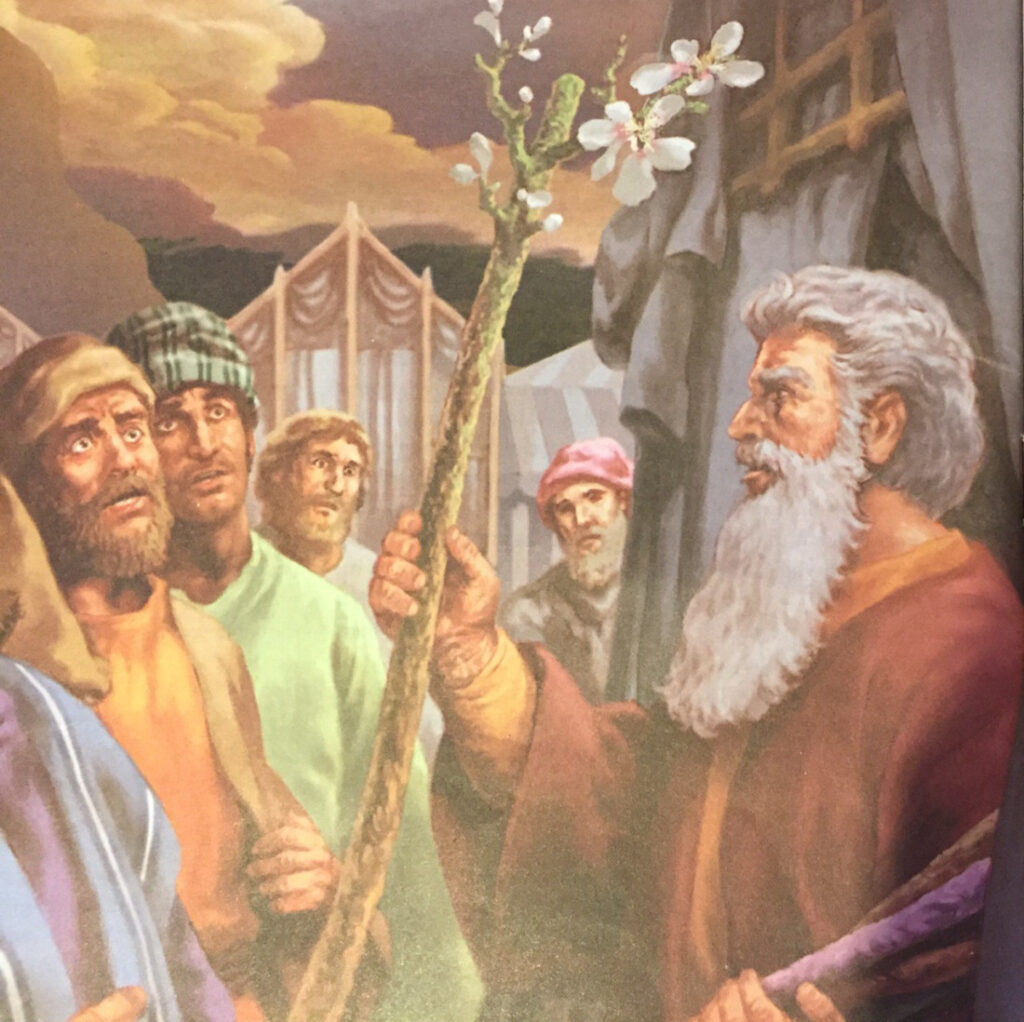
“The next day Moses entered the tent and saw that Aaron’s staff, which represented the tribe of Levi, had not only sprouted but had budded, blossomed and produced almonds. Then Moses brought out all the staffs from the Lord’s presence to all the Israelites. . .The Lord said to Moses, “Put back Aaron’s staff in front of the ark of the covenant law, to be kept as a warning to the rebellious. This will put an end to their grumbling against me, so that they will not die.” Numbers 17:1-5,8-10
Now I’m going to step on toes. We’re exactly the same way today. We grumble about those that God has put in charge. God has established that spiritual leadership is to reside in qualified, appointed men. The leaders/elders in local faith assemblies are to be men who meet certain requirements. The pastors and teachers are to be men. Yet many women chafe under this God-ordained system to their own detriment. When we get resentful or envious, it doesn’t change God’s good plan. Women who reason that they are as qualified as men to be pastors and teachers are correct. But that doesn’t change the fact that God chose to appoint men to positions of leadership in the church. (1 Corinthians 14:34, 1 Timothy 3 ) It is God alone who gets to choose who leads his people. And he has made it plain that he chooses men to lead. We women aren’t to officiate, or lead. This in no way makes women’s roles less important. Our roles are supporting, essential roles, just as the Levites were to the priests.